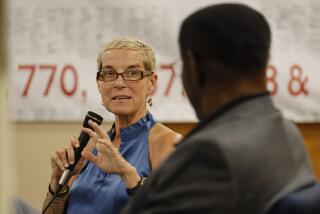Richard McKelvey, 57; Caltech Professor Tested Vote Theories
- Share via
Richard D. McKelvey, 57, a professor at the California Institute of Technology best-known for his role in developing mathematical theories of voting, died of cancer Monday at his Altadena home.
He pioneered the use of laboratory experiments to test theories of voting and other group behavior. Working with his Caltech colleagues, McKelvey explored the effect of various voting rules on the accuracy of jury verdicts, the effect of polls on election outcomes, and impasses in negotiations.
He discovered that the majority-rule voting system does not necessarily lead to compromise or “middle-of-the-road” decisions, contrary to conventional wisdom, but can produce more extreme results. This was one of his major contributions, colleagues said.
McKelvey also initiated a Turing contest, named after famed computer scientist Alan Turing, that will award a prize to the theorist who best predicts how people behave in strategic situations. The contest, which will include leading scholars in economics and game theory, will be held this summer.
A graduate of Oberlin College in Ohio, McKelvey earned a master’s degree in mathematics from Washington University in St. Louis in 1967, and a master’s and doctorate in political science from New York’s University of Rochester in 1970 and 1971. In 1979, he joined the faculty at Caltech, where he was the Edie and Lew Wasserman Professor of Political Science and director of the William D. Hacker Social Science Experimental Laboratory.




